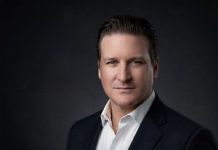Mukarram Mawjood Podcast Transcript
Mukarram Mawjood joins host Brian Thomas on The Digital Executive Podcast.
Brian Thomas: Welcome to Coruzant Technologies, home of the Digital Executive podcast.
Welcome to the Digital Executive. Today’s guest is Mukarram Mawjood. Mukarram Mawjood is the Chief Investment Officer at Bullionite Asset Group. Mukarram has lived and was educated in three diverse and major global financial regions such as Asia, the Middle East, and the United States. He holds over 15 years of direct experience trading global markets, equities, commodities, and cryptocurrency through both historic bull and bear markets.
This is especially important now when understanding the evolving needs of a global financial post COVID world. He continues to trade the global markets and educate his followers from his offices in Orange County, California.
Well, good afternoon, Mukarram. Welcome to the show.
Mukarram Mawjood: Hi, Brian. Thank you for having me.
Brian Thomas: Absolutely, my friend. I appreciate you hailing out of Orange County, California, my old stomping grounds, believe it or not, and that’s an awesome place. So I just appreciate you making the time, me being in Kansas City and always traversing these time zones, but Mukarram, if I could, I’m gonna jump into your first question.
You’ve lived and been educated in Asia, the Middle East and the us. How have those diverse financial ecosystems shaped your global investment philosophy?
Mukarram Mawjood: I think it’s a few different things, right? One is having the cultural sensitivity to the different investment needs that people have, right? Even though most of our clients are from the us, I mean, I travel a lot from business.
We do a lot of different projects outside the country as well. There. I think that really helps understanding that cultural sensitivity and then having that awareness. Allows us to bridge the two countries. Right. Which I always, that was one of my biggest things when I was in college. I always wanted to bridge the US with these certain entities.
I had these triangles in my head right all the time, and I was like, Hey, I’d like to bridge these countries together. And that helps us get progress because there are certain countries where some companies get stuck in getting some things done. But we, because we understand the culture or we understand how they work and their sensitivities allows us to be successful in our projects there, especially with real estate and international real estate and things like that.
The other thing, Brian, that I think that really, really helps us is just knowing how certain major fundamental. Can have ripple effects right across the pond, or it may start off all the way in Australia or in Indonesia, like for example, the Malaysia, Indonesia currency crisis that happened in the late nineties and how that reverberated across the pond and came over here.
And that allows us to hedge and manage risk properly because we don’t create stories in our head just by listening to the news or anything like that. But we’ve experienced kind of how that spreads. And how we can manage that for our clients, and I think that gives our clients a massive, massive edge.
Brian Thomas: That’s awesome. I appreciate that. Absolutely. I think your diverse background and having that cultural sensitivity really helps you understand people’s needs and having that sensitivity, as you mentioned, helps bridge that gap between countries, cultures, et cetera. What I really also liked is. Knowing really, you know, that foresight, knowing the fundamental differences around the globe and how to better manage risk and not just get excited about hyperbole.
Sometimes people get excited about different things. Yeah. So I appreciate that, Mukarram. My next question for you, let’s talk about Bullionite Asset Group at trades across equities, commodities, and crypto. What do you see as the most misunderstood risk or opportunity among these asset classes today?
Mukarram Mawjood: Yeah, great question.
First, what I’d like to do is let the audience know that other listeners know that Bullionite Asset Group is the new name for our company, Blackstone Commodity Group. Right? Blackstone Commodity Group has been in business for a significant period of time, like almost 15 years plus. We’ve now changed the name to Boite Asset Group.
Kind of having a group together where, because my educational branch of the company has been called Boite, and we’ve been doing that since 2014, 15, and I felt like it was time to make sure that the alternative asset branch reflects that uniformity. Right? So that’s why we have Boite Asset Group, which is the alternative asset firm where we do physical, precious metals, cryptocurrency, IRAs, self-directed IRAs, all that, and then Boite where.
We do the trading education, the coaching, the mindset training, right, to become successful traders. So getting back to your question, I think the most misunderstood to me would be on how people perceive risk, right? Because I think a lot of the times. We have been taught that risk means losing money. Okay?
It’s like you’re guaranteed to lose money if ever you’re in a conversation, right? Or someone’s just talking about risk already. There’s a preconceived notion that you’re gonna lose money. One of the biggest ways that I help clients and that we’ve had significant returns from the markets is turning that around and understanding what risk really is.
Risk simply means that there’s a possibility that you can lose money. And there is a probability that you can make money. Okay? And I, I’m choosing those words very carefully because how you increase that probability of making money and reduce that possibility of losing money is risk management. So if you can manage the risk, then you can take massive, gigantic risks.
Without being this individual that can’t sleep at night or is completely frazzled, right? So having that emotional intelligence will give you that edge that you need to be consistently successful. Now, that doesn’t mean you’re not gonna have losing trade, you’re not gonna have some investments that don’t make money, but you wanna have that edge where you have more winners than los.
Brian Thomas: Thank you. I appreciate you breaking that down for us, and thank you for highlighting the name Change to Bullionite Asset Group and I, I think that’s important for our audience to understand. You really highlighted how people perceive risks or they don’t perceive risks. You know, you talked about helping your clients understand.
The meaning of risk versus you know, the probability and changing that mindset, right? And I know you can train your gut, right, that intuition to be better at trading. People say don’t rely on your gut, but I’ve talked to people in your line of work that say you actually can train it and know what, what type of risks to take and so forth.
So I appreciate you helping our audience understand that. Mukarram, you’ve placed a strong emphasis on financial literacy for youth. What inspired you to launch the young Trader of the year and what impact have you seen so far?
Mukarram Mawjood: Oh, wow. Brian, that’s a, a very, very passionate project of mine. Okay. And it’s always been a goal of mine when it comes to youth literacy with money.
I don’t mean just letting people know like, well, when do you start a credit card? Or when you start saving money, that’s not what I’m into. Right. For me, my biggest successes came when I really understood what creating money was about and the principles that go into creating money versus earning money.
Right, and there’s a big difference, and I want everyone to understand that like if you look at money as something that you’re going to earn, then you’re going to live by a certain set of principles or a certain set of rules. Whereas creating money, which is what investing and trading is, is completely different to earning money, and you cannot live that same set of rules.
And then be successful. This is why people go, Hey, I’ve lost money. Or kids, they, they young college could say, Hey, I’m broke, or I don’t understand it. It’s because they bring the rules of earning money to creating money, right? So first of all, the reason I did this was because. We as parents, right? I have kids.
We as parents, we put so much effort into all of their, like their life, right? We put so much effort into teaching them so many things and send them to classes and these programs. But what we don’t put effort in is teaching them about money. And there are some parents and families and groups that actually shy away from talking about money, right?
And that’s one of the biggest things because. Knowing and understanding money will affect all of their decision making and decision making is the biggest reason that they’ll be successful later. Right? So this is why in my Young Trader of the Year program, what we do is we work with individuals who are between 16 and 22, because I feel that’s the most format time, right?
There’ll be just like a junior in, in high school and a junior in college. And that time in between is where we can teach them about money. That money is not a currency. Time is your currency not money. So don’t let anyone else tell you that you should exchange your time for a very small amount of money.
Right? And then understanding how to create money and make great decisions based on having that, that reliance. Because once you understand that and when you get confident, then your children, our youth will become confident and they’ll become winners because they’ll be self-reliant. Right? And the reason I say this.
Is you can, you know that there’s a generation right now, they’ve moved in with their parents, right? They don’t have their self-reliance that they should have. Also, we have young kids, like I have a a 9-year-old and a 10-year-old and a 13-year-old, and sometimes they say, Hey, you know, I don’t need to go to college.
I can make a few million dollars by being a YouTuber. Great. I love that you have, we have a social economy. I love that we have kids now that can think in millions rather than tens of thousands of dollars, right? But. Not understanding money and how to manage that. And having the knowledge base to create it and keep it is going to ruin their lives if they don’t respect education.
So that’s the approach I’m taking with my young creator of the year program.
Brian Thomas: I really love that. And that’s one thing we talk about a lot with people that have come on the podcast is really their purpose. And a lot of times it’s, it’s giving back and your passion project, as you mentioned, is helping mentoring the youth.
And I really like hearing you broke it down a little bit. Earning money versus creating money. They’re two different things and we need to help the younger generation and, and kids understand what that means because knowing and understanding finances will obviously influence our kids’ success in the future, as you said and time.
Absolutely a hundred percent. That’s your currency, not money, but teaching kids to be self-reliant is the big message that I took away, so I appreciate that. Mukarram. Last question of the day. With AI tools becoming more prevalent in retail and institutional trading, do you believe technology will level the playing field or further widen the gap between investors?
Mukarram Mawjood: Here’s the thing, Brian. Leveling the playing field is a very difficult thing to accomplish just with technology. Okay, and, and I wanna break this down a bit. Even if we take a little longer, right? And here’s why I wanna say this. There’s always gonna be a new technology today. It’s AI tomorrow. It could be something else next year.
It could be something that’s just unimaginable, right? But does that really level the playing field between an institution that has a massive amount of resources versus you Not really The here’s the difference because technology is not the leveler. Okay. What The real leveler is education and effort and resourcefulness.
So if you want to level the playing field, whether it is between your friends. In your family, whether it’s a small group of people in your city or whether it’s in the world, right? You have to become a more resourceful person. You have to become someone who’s extremely emotionally intelligent because that emotional intelligence and that resourcefulness is what allows you.
To make these massive gains in your life and then increase your net worth. And I’m not just talking about just money, but also just your entire life purpose. Right? Now, here’s the interesting thing. Will AI make it more accessible? Will it make it more prevalent, right. Or will someone who wasn’t thinking of investing now think it’s simpler to do it?
Yes, that I agree with. But you cannot take away effort and resourcefulness. Right. The other thing that I wanna focus on here, and this is how I look at leveling the playing field, because let’s say you’re going against the behemoth, right? Like a hundred billion dollar hedge fund, or not going against, but meaning they’re trading the same instruments that you’re trading, but they do have way more resources, right?
How do you level the playing field there? By understanding price action, [00:12:00] by understanding what price action means in an asset class, and then how you follow. And here’s the best example I’ll give, okay? And I hope I can, I can create this vision for individuals who are listening. It’s like if you’re in Hawaii and then early, early morning, like 3:34 AM you paddle, you wait in that calm waters waiting for that massive big wave, right?
And when that wave starts coming, that wave is that hedge fund, right? What you do is you get on that wave. That’s your job because you understood that price analysis. After that, you go for the ride, but you get off before that wave crashes. Because you can’t level the playing field in that wave on a surfboard.
But if you put the effort, you are up early, you are resourceful, you follow the price action, then you’ll make significant gains, sometimes percentage wise that will amaze you. And that’s how you level the playing field here. And this is what I teach in our coaching programs and bull in trading. I always say 75% of trading is mental, 25% is skill.
Brian Thomas: Thank you. I really appreciate that. Breaking that down. Obviously, when I asked about leveling the playing field, we did mention that, yeah, AI will certainly help you, but being resourceful, having resources, putting in the effort, you were very clear about that. Technology is really not the leveler, it’s the education, the effort, the resourcefulness that a person puts in or a company puts into that As far as effort.
And then understanding, there’s a lot of things you can understand, but you highlighted some things like understanding price action and other strategies to further, you know, yourself in this line of education and then you broke down 75% of it’s mental, 25% of it’s skill. I didn’t know that, and I think that’s really important.
Obviously you gotta be a risk taker in your line of work and I appreciate everything that you shared with us, Mukarram, it was certainly a pleasure having you on today and I look forward to speaking with you real soon.
Mukarram Mawjood: Yeah. Thank you very much, Brian. I really enjoyed it. And if anyone wants to kind of find out more information about us, they can go to blackstone commodity.com.
They can visit Bullionite Asset Group and then once the name change is completed, you’ll see Blackstone forward to Bullionite Asset Group and also you guys can reach me through the phone number and the contact information we give you.
Brian Thomas: Bye for now.
Mukarram Mawjood Podcast Transcript. Listen to the audio on the guest’s Podcast Page.











